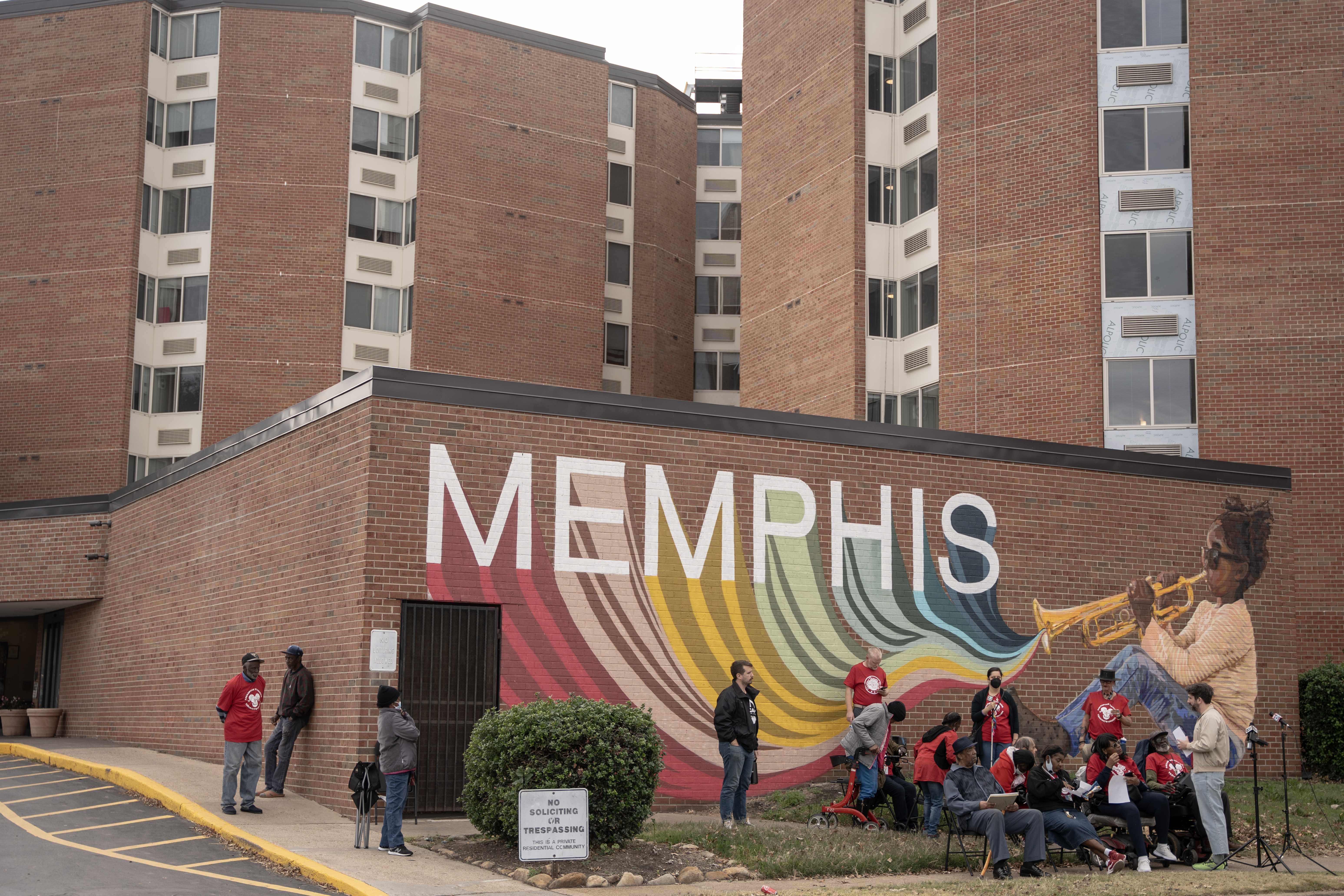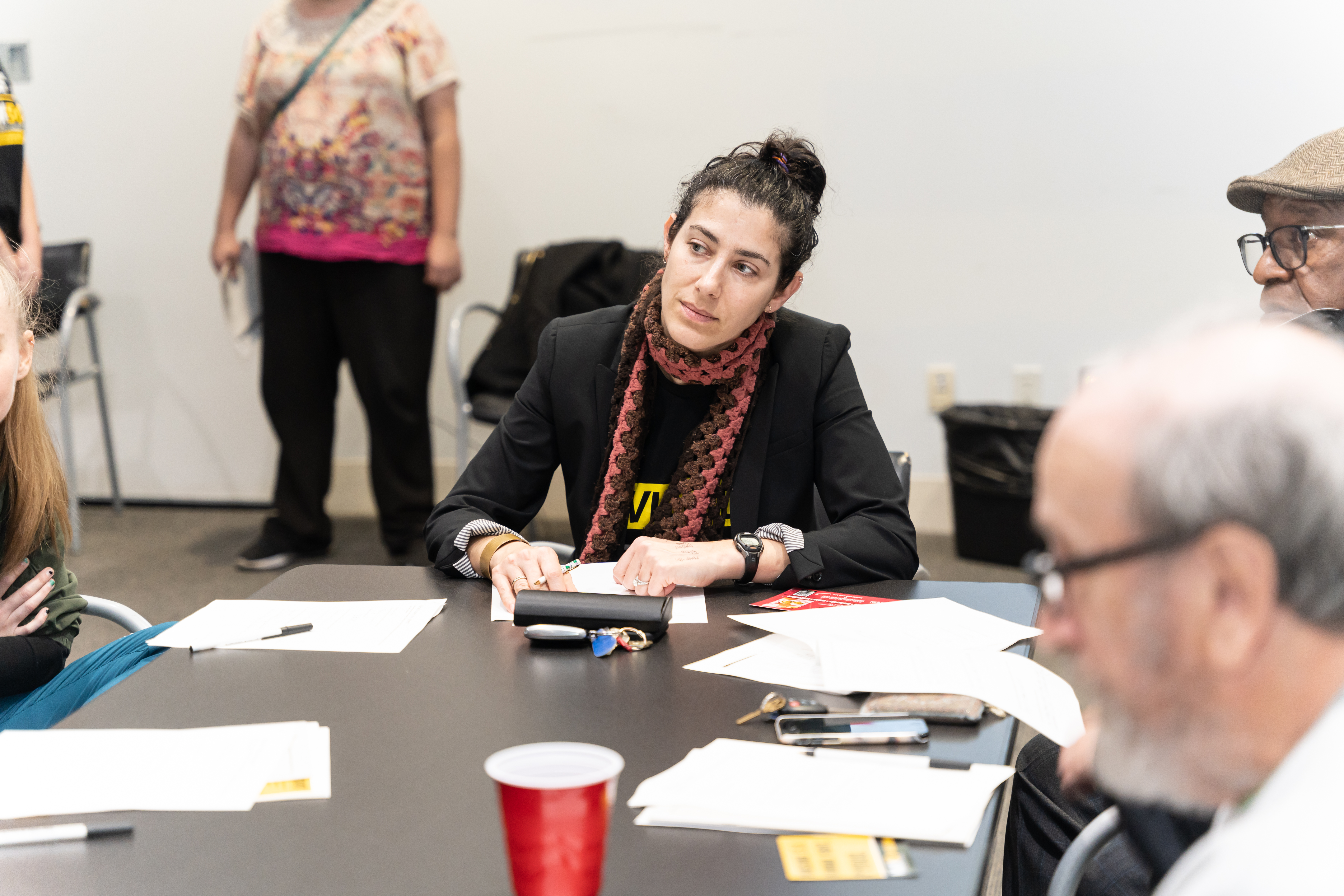
The Community Foundation of Greater Memphis is going out on a limb, in hopes it leads to major, systems-level changes in the city.
The foundation plans to give almost $2.4 million over the next five years to three organizations advocating for more equitable housing and criminal justice systems: The Greater Memphis Housing Justice Project, Just City and the Memphis Interfaith Coalition for Action and Hope.
The approach is riskier than funding direct services, such as homeless shelters, but is also more likely to create lasting change, said Aerial Ozuzu, the foundation’s director of community impact.
“(We) wanted to see the work done in a different way. We’re used to those day-to-day assistance programs for people,” said Ozuzu. “But how do we make (the housing and justice) systems better systems so people are treated fairly?”
While the foundation’s primary role is helping donors give to the nonprofits they choose, it has also long conducted its own grantmaking. Pre-pandemic, many of these funds went to organizations working with kids. But after a strategic planning process last year, the foundation decided to switch.
The decision may not pay off right away, Ozuzu said. Because it’s attempting to create large shifts in housing policy and practices, the Greater Memphis Housing Justice Project, for instance, may take a while to achieve tangible change.
“That’s the thing about tackling a root issue and systems-change work. Even in five years … who knows what it’s going to look like?” Ozuzu said.
Regardless of what the organizations produce in the interim, the foundation has committed to funding them for five years, and it’s allowing them to spend the cash largely as they see fit, not placing typical restrictions on the funding.
For the GMHJP, the funding is a huge win. At $165,000 per year, it’s the largest gift the nonprofit — a collaboration between the Black Clergy Collaborative of Memphis and the Memphis Public Interest Law Center — has received.

GMHJP co-founder Jamie Johnson, who is also MPILC’s executive director, said it can be tough to sell funders on systems-level advocacy for tenants, especially when she can’t specify exactly what the organization will accomplish since it will be guided by renters’ experiences.
“If you force me to give you a formula for one year of work, if we’re truly listening and (adapting), it won’t really hold,” she said.
The Community Foundation’s willingness to trust her with such a large, long-term commitment, she said, is huge for the GMHJP. The funding is allowing the group to significantly grow its capacity by hiring its first full-time employee and beginning to pay part-time tenant organizers. And it will allow the nonprofit to gather better data about evictions, such as why people are being evicted, why most tenants don’t show up to court on the day of their eviction hearings and how often people being evicted have legitimate defenses, which might be successful if they were able to afford an attorney.
Though the details will be guided by tenants and data gathered, Johnson said she has three broad goals for the organization:
- Re-shaping the housing narrative in the city around the experiences and expertise of tenants;
- building the capacity of local renters to make their voices heard in the community, at City Hall and across the state;
- and changing local and state policies and practices that are skewed in favor of landlords.
“We are building people to advocate for themselves and address those systems that harm them,” said GMHJP co-founder Shirley Bondon. “Renters aren’t all bad. Landlords aren’t all bad. But there is definitely an imbalance of power between renters and landlords.”
The Memphis Interfaith Coalition for Action and Hope plans to use its portion of the grant, $210,000 per year, to do similar housing work and to advocate for change to the local criminal justice system.
Though MICAH has advocated on housing issues in the past, its connection to the issue has waxed and waned through the years. With the grant, it’s hoping to commit significant effort and funds into improving conditions in Memphis’ rental homes and apartments, said Gisela Guerrero, a community organizer employed by the coalition.
Similar to GMHJP, Guerrero said MICAH’s first steps will involve listening to renters, equipping them to advocate for themselves and trying to better understand the local housing landscape.
As a starting point, though, she said the group plans to focus on the Health, Educational and Housing Facility Board of the City of Memphis. The quasi-governmental body awards tax breaks and tax-exempt bonds for low-income housing, which developers say are essential as affordable housing becomes harder to build.
In return for this financial assistance, landlords promise to maintain healthy, safe and attractive exteriors and provide certain “tenant benefits,” such as renovations, upgraded appliances or social services. If they don’t, the board can end the lucrative tax incentives.

The board — while being pressured by the Memphis Tenants Union — started taking a more proactive approach to compliance last year. The roughly 110 properties it subsidizes are often frequent evictors and violators of city code. But it has remained hesitant to end any tax breaks, worrying that doing so would lead to landlords placing properties in bankruptcy, selling them or ceasing to pay for any maintenance.
The Memphis Tenants Union has been taking a less active approach to the HEHF board, since conditions have improved at Memphis Towers — the property that’s been its priority — under new ownership.
MICAH is hoping to build off of MTU’s work.
“(MTU) identified systemic problems that can be solved with policy solutions,” said Austin Harrison, an assistant professor of urban studies at Rhodes College and leader of MICAH’s housing task force. “The City of Memphis HEHF board needs to … (use better) guardrails to protect our most vulnerable Memphians.”
Harrison said, though, he’s hoping his organization’s relationship with HEHF won’t be an adversarial one. MICAH is currently trying to learn more about the board and possible ways it could make sure the properties it incentivizes are kept in good condition. Once it fine-tunes its preferred solutions, it hopes to work hand-in-hand with board members on implementing them.
Along with these housing efforts, MICAH will use the grant to reinvigorate its criminal justice advocacy.
Guerrero said the organization was deeply frustrated by the Tennessee General Assembly’s recent preemption of the police reform ordinances her organization helped push through the Memphis City Council in the wake of Tyre Nichols’ killing. She believes the public conversation around policing has become increasingly divisive, with a prevailing narrative that any attempts to reform the police department or reduce its budget are attempts to reduce public safety in the city.

Because of this, Guerrero said MICAH plans to return to square one: talking to more community members about the issue as well as people from cities that have improved public safety in ways other than adding police. From this research, the organization will plan its next public safety campaign.
The General Assembly’s recent actions were mentioned by all three grant recipients when they spoke about their plans for the funding at the Community Foundation’s annual meeting.
Just City founder Josh Spickler said his organization will be working to ensure equitable bail practices in the county after a new state law — prohibiting judges from considering defendants’ finances when setting bail — “disrupted everything.” Spickler told MLK50 he doesn’t think the law will withstand the legal challenges that are likely forthcoming but didn’t commit to Just City itself filing suit.
Just City will also use the funds — $100,000 per year — to continue to pay people’s bail for low-level accusations, get residents’ records expunged, take part in “strategic litigation” that protects Memphians’ rights and conduct “court watch” and data analysis that brings transparency to the system.
“We’ve got to be very careful in these days ahead that we don’t undercut some really, really important rights,” Spickler said. “Because the presumption of innocence is under attack, quite frankly. And we’re going to try to protect it because it works to keep us safer.”
Jacob Steimer is the housing and development reporter for MLK50: Justice Through Journalism. Email him at Jacob.Steimer@mlk50.com
This story is brought to you by MLK50: Justice Through Journalism, a nonprofit newsroom focused on poverty, power and policy in Memphis. Support independent journalism by making a tax-deductible donation today. MLK50 is also supported by these generous donors.
